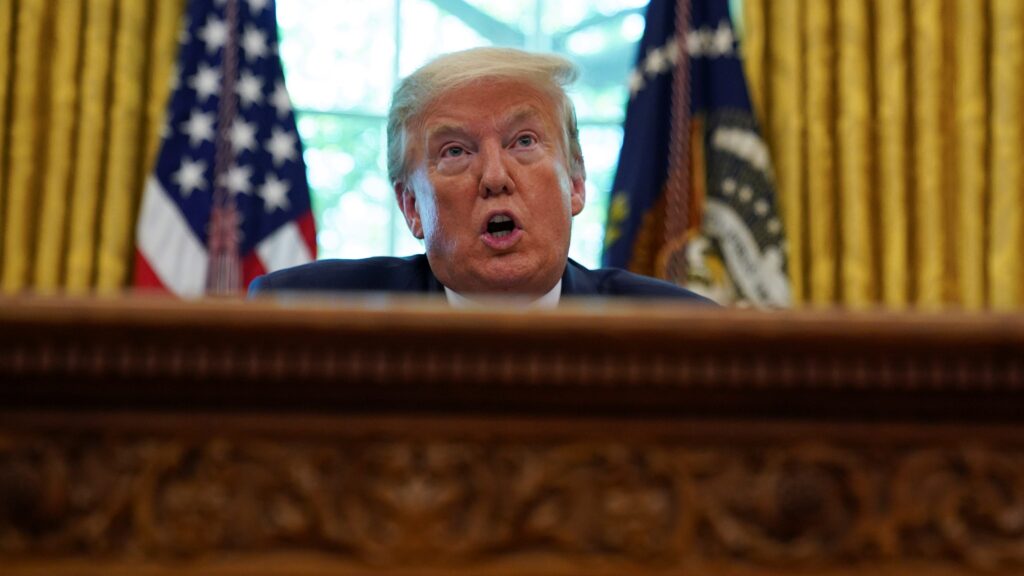President Donald Trump’s recent criticism of Federal Reserve Chair Jerome Powell, calling for his “termination,” highlights Trump’s ongoing pressure on the central bank to lower interest rates. This comes at a critical time for the Fed, as the administration challenges constraints preventing the president from firing independent agency board members. Powell faces a dilemma as the Fed navigates its dual mandate of controlling inflation and promoting economic growth amidst uncertainties like high import tariffs.
Powell emphasized the Fed’s role in managing price increases caused by tariffs to prevent sustained inflation. The Fed must balance its goals of maintaining low inflation and supporting economic growth, potentially complicating decisions on interest rate cuts. Trump’s push for rate reductions could impact market expectations and inflation dynamics, leading to higher long-term interest rates.
The independence of the Fed is crucial for effective policymaking, but Trump’s influence raises concerns about political pressure affecting monetary decisions. While Powell asserts the Fed’s insulation from politics, the administration’s challenges to agency board member rules and Trump’s public criticisms may strain the Fed’s independence.
Historically, presidents have influenced Fed policy, but Trump’s overt pressure on interest rates surpasses previous administrations. His persistent calls for rate cuts to boost economic growth have clashed with the Fed’s gradual rate hikes to prevent inflation. Trump’s public comments and demands for aggressive rate reductions highlight the complex dynamics between the presidency and the Fed, raising questions about the central bank’s autonomy in decision-making.

